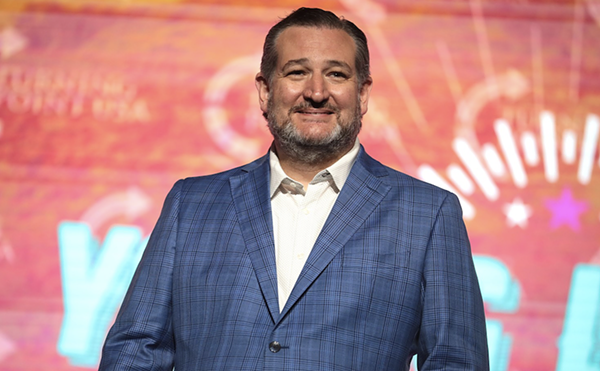The ensuing scandal dominated Reagan’s last two years in office, and suggested that he was either a hopelessly out-of-the-loop chief executive or a duplicitous schemer with a guileless smile.
The long-term impact of Iran-Contra was muddled, however, partly because Oliver North, one of its primary players, swayed public opinion during Congressional hearings with a pious Jimmy Stewart act, and partly because few Americans bothered to explore the deeper implications of the surface deceit.
Iran-Contra revealed, for anyone willing to look, that the Reagan administration had responded to the debacle of Vietnam by creating a shadow government, a group of faceless, unknown crusaders who carried out dubious foreign-policy strategies without accountability to the American public.
Twenty years later, some of the key figures from that era are suddenly re-emerging, as if by historical inevitability. After 16 years in the political hinterlands, Sandinista leader Daniel Ortega is once again president of Nicaragua. James Baker, chief of staff and treasury secretary under Reagan, is once again playing Mr. Fix It for a Republican president as the leader of the Iraq Study Group. And Robert Gates has been selected to replace Donald Rumsfeld as defense secretary.
Gates’s role in Iran-Contra is unlikely to receive a serious examination during Congressional confirmation hearings, simply because newly empowered Democrats are so eager to see Rumsfeld go, they don’t want to do anything to slow his departure.
By all accounts, Gates, currently the president of Texas A&M University, is a man of formidable intelligence and fierce discipline, and he’s won raves for his remolding (or “rebranding,” as the current Texas Monthly cover story puts it) of Aggieland. When the Iran-Contra story broke, Gates was the deputy director of the CIA, and while his name was often linked to the scandal, it never defined him in the way that it defined John Poindexter or Robert “Bud” McFarlane. In 1987, the controversy was fresh enough to scuttle Gates’s nomination to be director of the CIA, but four years later, he won relatively easy confirmation by claiming a lapsed memory over most details pertaining to Iran-Contra.
Much as he benefits from not being Rumsfeld, Gates nonetheless has some troubling question marks on his résumé. An authority on Russian and Soviet history, Gates was a Cold Warrior notorious for slanting intelligence to match Reagan’s equally hawkish foreign-policy agenda.
A recently declassified 1984 CIA memo from Gates to his then-boss William Casey, suggests that, whatever Gates’s role in Iran-Contra, he certainly possessed an obsessive drive to destroy Nicaragua’s Sandinista government. In the memo, Gates advocates that the United States “do everything in its power short of invasion to put that regime out.”
David Kasper produced the 1988 documentary Cover Up, an early attempt to shed light on covert operations during the Reagan years. He sees Gates as a central, if elusive, figure in those operations.
“He managed to hide in the background pretty effectively,” says Kasper, co-director of the Empowerment Project along with Oscar-winning documentarian Barbara Trent. “He was Casey’s right-hand guy, and did a lot of his work for him. He was never really brought to account for his role in Iran-Contra, but he had to have been involved in the arrangements that were made with the Iranians to ship the weapons.”
Kasper also cites persistent, albeit unproven, allegations about Gates’s possible role in a secret 1980 meeting between Iranian officials and representatives of Reagan’s campaign team to prevent the release of American hostages held in Iran until after Reagan defeated incumbent Jimmy Carter in that year’s presidential election. A Russian intelligence report lists Gates as one of the Americans present at this purported meeting, an allegation doubly shocking because Gates served under Carter for three years in the National Security Council.
“He’s kind of a political animal,” Kasper says. “It’s ironic that he’s being brought in to find a solution to this war that was started as a result of the kinds of things that he was doing.”

















